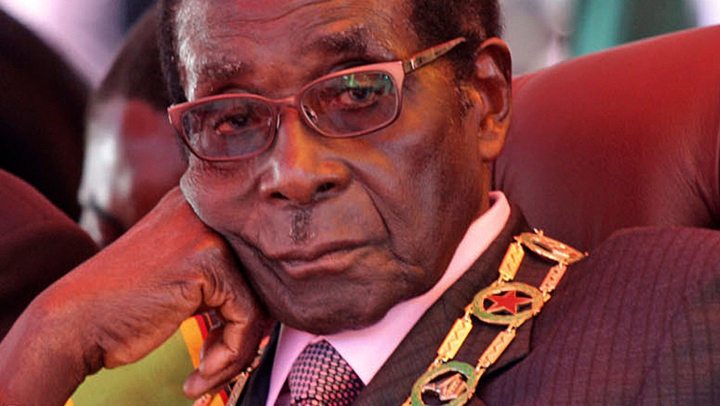Africa
Zimbabwe goes after the little guys in latest indigenisation drive

After all that election talk of indigenisation, Zimbabwe has to indigenise something. The government doesn’t really want to devastate the economy again, however, and it can’t afford (quite literally) to buy out the mining giants who are the real target of their ire. The solution: go after the small fry, the voiceless Chinese and Nigerian small business owners whom no one will stick up for. By SIMON ALLISON.
As the Democratic Alliance grapples with the issues of race and equality, and the Economic Freedom Fighters pledge to nationalise everything in sight, so our noisy neighbour up north is, as usual, doing its own thing, carving another radical, lonely furrow in the indigenisation debate.
Although there are plenty of criticisms that can and should be directed towards Zimbabwe’s approach, it’s worth acknowledging that at least Zimbabwe is doing something to address the problems of historic, widespread inequality; and that Zanu-PF’s commitment to radical indigenisation is a big part of what got the party re-elected earlier this year (that and the dodgy voting practices, of course).
Here’s the latest: in an official parliamentary warning, economic empowerment secretary George Magosvongwe gave a strict ultimatum to the foreign owners of businesses in certain sectors. He told them that they had until 1 January 2014 to hand over their businesses to Zimbabweans – or face arrest. To avoid prosecution, foreign owners will have to present an indigenisation compliance certificate, which can only be obtained after they’ve transferred a majority holding in their company to a Zimbabwean.
The sectors in question include: Retail and wholesale business, hairdressers, beauty salons, bakers, employment agencies, agriculture, transport, estate agencies and advertising agencies.
It’s a strange list, notable for leaving out the really big foreign fish (the banks and the mines). It’s not directed at the last few white farmers or fat-cat corporations (both of whom have borne more than their fair share of pain at the hands of the country’s sporadic indigenisation initiatives), but instead at the small traders and businessmen and women operating in towns and cities all over Zimbabwe: the Chinese couple who run the local general store, or the Nigerian lady who offers pedicures in her tiny stall. These are the economic migrants who were desperate enough to migrate to Zimbabwe when Zimbabweans were leaving en masse, and clever and diligent enough to sustain their business in a moribund economy. Now Zimbabwe wants them out.
Not to worry, though. The authorities have learnt from the white farm repossession debacle – in which the farms appropriated by the thousands of inexperienced ‘war veterans’ fell into disrepair, turning the one-time breadbasket of Africa into a net food importer – and is in the process of lining up suitably trained Zimbabweans to take over from the foreign owners due to be dispossessed of their companies. At least, that’s the theory; there’s nothing to stop these profitable businesses being handed out as rewards to loyal cadres as part of the ruling party’s patronage network. Given Zanu-PF’s track record, this seems the most likely scenario.
It’s a canny political move. For a start, the targets of this particular indigenisation drive are in no position to fight back, possessing little financial or diplomatic clout (China, who has some weight to throw around, has not yet commented on the impending fate of its nationals). Then there’s the facilitation of that all-important patronage network – the ruling party needs to keep finding favours to distribute among its support. Finally, targeting the low-hanging fruit covers up the failures of the government when it comes to nationalising the far more lucrative mining sector.
Of course, Zimbabwe would dearly love to nationalise the mines – but it’s becoming increasingly clear that this comes with costs that the country just can’t bear right now. Take the example of Zimplats, the South African-owned platinum concern. According to BusinessReport, Zimplats agreed in principle in January to sell 51% of its shares to any interested Zimbabwean entity. At a cost of R9 billion, however, no Zimbabwean entity can afford it, meaning that Zimplats remains resolutely un-indigenised. And the country is wary of going for the outright nationalisation route: first, because it can’t afford to further alienate South Africa, with whom relations are already precarious; and second, because it is, believe it or not, in the process of trying to attract foreign direct investment.
It is, therefore, the Nigerian and Chinese small business owners who will pay the price of Zanu-PF’s election promises. Unpopular anyway (the xenophobia displayed so regularly in South Africa is alive and well in Zimbabwe too), these traders and entrepreneurs will struggle to kick up a fuss. DM
Read more:
- 30 day ultimatum for foreign shops in The Herald
- Zimbabwe deadline for foreign firms on BBC
Photo: Zimbabwe’s President Robert Mugabe looks on during a rally marking Zimbabwe’s 32nd independence anniversary celebrations in Harare April 18, 2012.REUTERS/Stringer

















 Become an Insider
Become an Insider